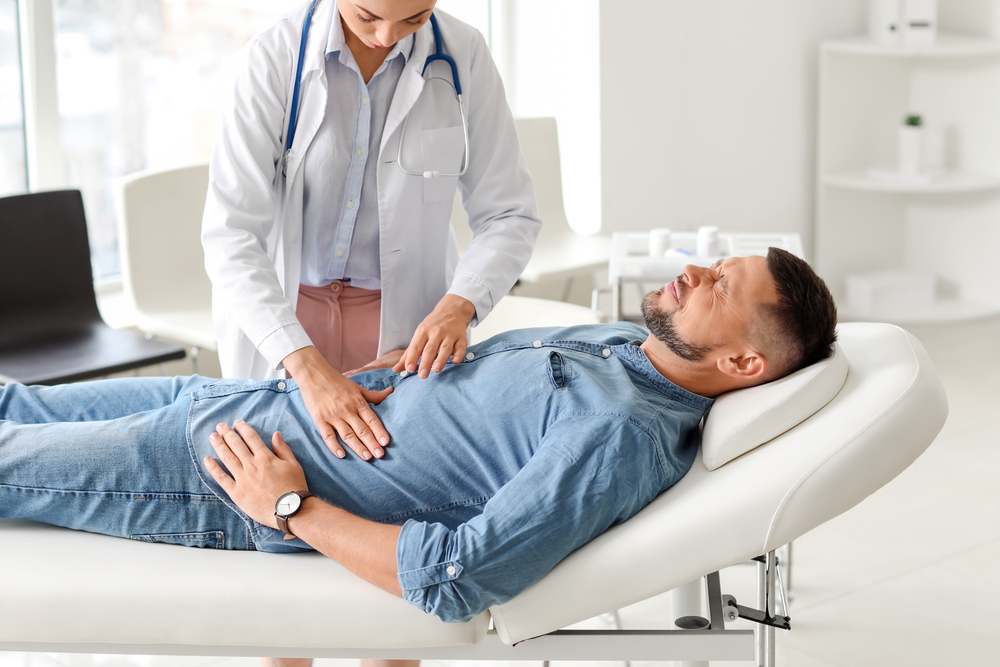Advanced treatments to improve digestion and reduce inflammation
As an inflammatory bowel disease (IBD), Crohn’s disease causes inflammation in the digestive tract – which can lead to abdominal pain, severe diarrhea, fatigue, weight loss, and poor absorption of vital nutrients.

Crohn’s disease can affect any part of the small or large intestine, involving various smaller segments or larger portions of the digestive tract. The disease impacts almost one percent of the overall population and is usually diagnosed in adolescence or early adulthood.
There is no known cause of Crohn’s disease, although some research suggests that an autoimmune reaction may be a factor, a condition where the body’s immune system attacks healthy cells in the digestive system.
Symptoms of Crohn’s disease can range from mild to severe. They usually develop gradually, but sometimes will come on suddenly, without warning. Some patients suffer ongoing symptoms, while for other patients, the effects of the disease may fluctuate and even appear to go into remission for a few days, weeks, or months – and then return.
When the disease is active, symptoms typically include:
- Diarrhea
- Fever
- Abdominal pain and cramping
- Reduced appetite and weight loss
- Pain or drainage from inflammation of a tunnel into the skin (fistula)
Crohn’s disease can be both painful and debilitating. It some cases, it can lead to life-threatening complications outside of the digestive tract that include:
- Inflammation of the skin, eyes, or joints
- Inflammation in the liver or bile ducts
- Iron deficiency (anemia)
- Obstruction in the intestine
- Anal fissures that can cause itching, pain, or bleeding
- Malnutrition because the body cannot absorb various vitamins, minerals, and other nutrients
No cure, but various treatments options available
There is no definitive test for Crohn’s disease, so a diagnosis can only be made after tests to rule out other diseases and conditions. And there is no known cure, but various treatments can help reduce the severity and frequency of symptoms.
Some of these treatments include:
- Anti-inflammatory medications: Corticosteroids can help reduce inflammation but can generally be used for only a few months as a short-term treatment.
- Immune system suppressors: These medications can help reduce inflammation by targeting the immune system, but may cause side effects and reduce resistance to infections.
- Antibiotics: In some cases, antibiotics are prescribed to reduce drainage of fistulas and abscesses. Some research suggests that that antibiotics can help reduce harmful bacteria that may be causing inflammation in the intestine.
- Pain relievers: For mild pain, patients may be advised to take acetaminophen, but avoid others such as ibuprofen because they can actually make symptoms worse.
- Nutrition therapy: Physicians may recommend a special diet, be fed with a feeding tube, or by nutrients infused intravenously. This can improve nutrition and give the intestines some rest time that can reduce inflammation in the short term.

If medications or changes to the diet are ineffective, surgery may be recommended. In fact, almost half of patients with Crohn’s disease undergo surgery. In these cases, diseased portions of the digestive tract are removed, and healthy portions are reconnected. Surgery may also be used to close fistulas and drain abscesses.
But the benefits of surgery are often only temporary because in many cases, the disease recurs near the reconnected tissue.
Advanced stem cell therapy: Another treatment option for Crohn’s Disease
Mesenchymal stem cells (MSCs) have shown promise in the treatment of Crohn’s disease because they are known to help modulate the immune system, reduce inflammation, and promote healing.
Unlike medications that may not be effective in the long term or surgery, which can pose risks of complications and may provide only temporary relief, stem cell therapy amplifies the body’s natural healing processes.
The scientific rationale for mesenchymal stem cells to treat Crohn’s disease
Umbilical cord-derived MSCs are known to be among the most effective in:
- Modulating the immune system by suppressing the activity of immune cells that contribute to inflammation that occurs in the intestinal wall in Crohn’s disease.
- Promoting healing of tissue because MSCs can signal the body’s own cells to repair damage and alleviate symptoms.
- Reducing inflammation by signaling the body’s cells to secrete various anti-inflammatory molecules.
There are many different types and sources of mesenchymal stem cells. Some clinics use cells harvested from the patient, either from bone marrow or adipose (fatty) tissue. At BioXcellerator, we use cells from umbilical cords because research shows that these young cells offer more therapeutic potential. Using our proprietary protocols, we culture and expand these cells to improve the potency of these cells and effectiveness of treatment.
Recent research demonstrates new hope
There have been several research studies conducted on the use of mesenchymal stem cells to treat Crohn’s disease. Here are a few examples:
A 2018 study published in the Journal of Crohn’s and Colitis evaluated the safety and efficacy of MSCs derived from umbilical cords to treat refractory Crohn’s disease in 36 patients. The researchers found that treatment was safe and well-tolerated, and that there was a significant reduction in disease activity in the majority of patients.
A 2021 study published in the journal Stem Cells International evaluated the use of MSCs derived from umbilical cords in the treatment of perianal fistulas in patients with Crohn’s disease. The study involved 16 patients who received injections of cells into their perianal fistulas. The researchers that there was a significant reduction in the size and number of perianal fistulas in the majority of patients.
More research studies are now being conducted to evaluate these innovative treatments. This is good news for Crohn’s disease patients who now have another option when medications or surgery are ineffective.

